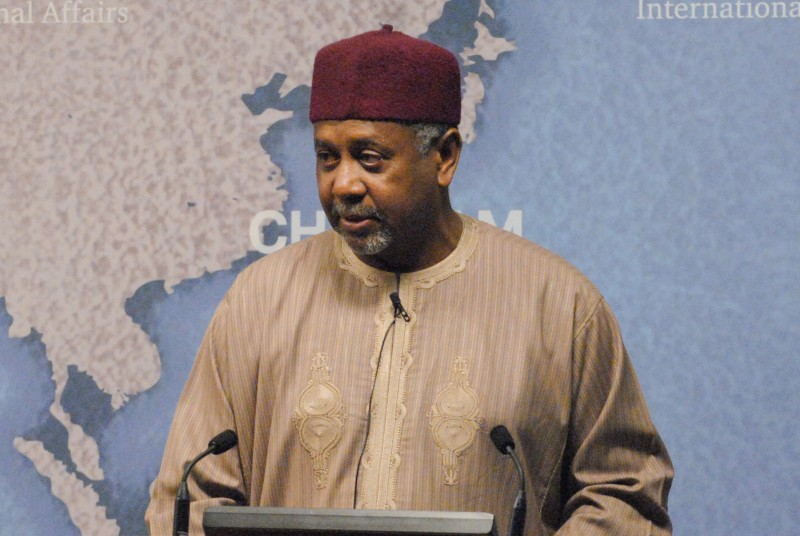Nigeria's former national security adviser is facing corruption charges at home, but documents show that suspicions about him stretch back years and across the Atlantic Ocean — all the way to South Carolina, where he purchased a horse farm in 2002 with dubious funds.
Shortly after his removal from office in 2015, Sambo Dasuki was arrested and charged in Nigeria for allegedly mismanaging $2.1 billion intended to buy weapons to fight the Islamist insurgent group Boko Haram. The case is still in the courts, Dasuki has pleaded not guilty, and the charges have not been proven.
In a 2024 investigation, Nigeria’s Premium Times, the Platform to Protect Whistleblowers in Africa (PPLAAF), and the Washington Post found evidence that Dasuki likely funneled suspicious funds into a $2.8-million mansion in a Washington D.C. suburb. PPLAAF has now collaborated with OCCRP, the Houston Chronicle and Charleston’s Post and Courier to report on Dasuki’s South Carolina farm.
A 2007 letter from the U.S. Citizenship and Immigration Services, obtained by PPLAAF, shows that officials had doubts about the “lawful source” of the money he used to buy the property.
The letter upheld the rejection of an application by Dasuki’s wife, Farida, for an immigrant investor visa. That investment was her husband’s farm in the Aiken Horse District, which Dasuki bought in June 2002 for $950,000 in cash, years before he served as NIgeria's national security advisor. He then transferred the title to Farida.

Green Hills horse farm, purchased by Sambo Dasuki in 2002, about six miles from Aiken, South Carolina.
She told U.S. immigration that the money for the property came from a petroleum company, which had paid Dasuki $1 million to lobby Ghanaian officials for a deal to rehabilitate an abandoned offshore oil field. She supplied an unsigned consulting contract.
The explanation did not satisfy American immigration officials, the letter shows.
“The record lacks evidence that the petitioner's spouse has the type of experience in the oil and gas industry that would justify such a large consulting fee,” they wrote.
Dasuki and his wife did not respond to questions sent through his spokesperson and his lawyer. Questions included whether Farida received a U.S. visa after her immigrant investor application was rejected in 2007, as well as queries about the source of the funds Dasuki used to purchase the farm.
“It is worth noting that his family has a strong legacy of success in business and entrepreneurship, independent of any government affiliation,” Dasuki’s spokesperson, Yushua Shuaib, wrote in a text message.
A representative of the oil company cited as the source of the funds has also cast doubt on Farida’s explanations.
Quincy Sintim-Aboagye was CEO of Texas-based Lushann International Energy Corporation, which she said hired Dasuki for lobbying efforts.
“I didn’t pay Mr. Dasuki,” Sintim-Aboagye said in an interview.
“I didn’t have a million dollars,” he added, although he did not rule out the possibility that someone from the company’s Nigerian subsidiary could have made payments.
According to the letter, payments for the farm were wired to the seller’s agent from bank accounts held by firms in Hong Kong and the U.K.
Farida said Dasuki had directed the oil company to send his lobbying fee to the seller’s agent via the two companies, but U.S. authorities said she gave no evidence of this. Farida also failed to provide proof that her husband had paid tax on the funds.
Farida is still listed as owner of the farm, but the property tax has been paid by Alex Pacheco, a polo photographer who said he spends his time between Florida and Aiken.
Pacheco did not divulge details about the current business status of the farm. Public information shows that the sprawling estate includes holiday accommodation, as well as horse tracks and stable rentals.
Pacheco said he met Dasuki in Washington D.C. in the 1980s, and they became friends. Later, he took Dasuki and his wife to Aiken to purchase the farm.
“He liked watching polo and being with his family,” Pacheco said. “He’s a nice private person, and I like to keep it like that.”



